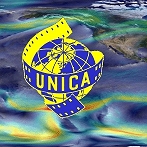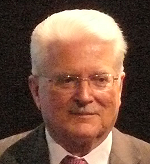
UNICA 2013
not in Korea but Austria
 The
news from Korea on January 23rd 2013 struck us like a bombshell.
For financial, organisational and other reasons they announced
that they could not host our annual festival in its 75th jubilee
year.
The
news from Korea on January 23rd 2013 struck us like a bombshell.
For financial, organisational and other reasons they announced
that they could not host our annual festival in its 75th jubilee
year.
We could not believe it, since we have for years seen and appreciated the assiduous work of our Korean friends led by Mr. Chan Joo Chang – especially in 2006, when we had the chance to attend a very busy and varied festival. As late as November 2012, during our autumn meeting in Heerlen in the Netherlands, Mr. Chang came in person and submitted to the committee details of progress and the state of final preparations.
Once we recovered from this first shock, we had to find an alternative solution. After we announced that Korea could not organise the festival, many federations declared their readiness to come up with a plan B, or at least to analyse to what extent – knowing how tight the deadlines were – it might be possible to develop a strategy. It might even be a very basic festival, just so that the 75th anniversary of our organisation would not end up in the worst case scenario as a fiasco. Once we spread the news, Armenia and Germany came forward as friends to us film-lovers. Some clubs, notably in Romania, the United Kingdom and Switzerland indicated that they were interested too. To all of them, thank you.
After an initial discussion, the Executive Committee decided to enter into negotiations with the BDFA, believing that in these exceptional circumstances, it would be better to organise the congress in Central Europe. Many of our loyal supporters had already bought their plane tickets to Korea. Others had booked places on the trips organised by the Dutch and Austrian groups to spend some time in China in combination with the UNICA. Many of them faced substantial financial losses. An alternative solution at the heart of Old Europe was thus, the only way to cushion the costs for most of those "victims".
In spite of a promising start, those talks did not lead to a
solution, mostly due to organisational and financial problems.
Later on, the VÖFA took over under the leadership of its president,
who is a member of our committee, Alois Urbanek. He told us that the
Fieberbrunn club was interested in organising the 75th festival.
From then on, everything moved quickly. Four of us travelled to
Tyrol and on February 19th, 2013 had two hours of intense
negotiations with the people in charge of the local club.
When we saw the reactions of the committee members, representatives
of the local authorities and the tourist office who attended the
discussions, we felt a great weight lift from our shoulders. It was
clear that UNICA was welcome and that everything would be done to
ensure Fieberbrunn offered us, not a basic alternative, but a real
festival with all the traditional ingredients we all appreciate. A
general assembly of the club taking place two days later unanimously
approved the project and the budget presented by the committee.
The dates are now known, the festival will take place from August 24th to August 31st , 2013. All the information is – as of now – online on the www.unica2013.com website. As we visited the place where the festival will take place, we realised how good the quality and the suitability of the infrastructure were.
During the committee's spring meeting in Bratislava from April 17th to April 21st , our Austrian friends will present the details of the program that has been discussed for Fieberbrunn. The committee will also consider the progress of preparations for UNICA 2014 which will take place in the spa town of Pieštany. Having received confirmation that the Ministry of Culture of the Slovak Republic will support us, we are going to discuss with the organising committee a number of current issues and we will go to Pieštany to assess the suitability and the availability of places such as the congress centre and the hotels.
If the schedule allows it, the committee will also deal with some
other important issues in Bratislava. Here we must examine and
discuss changes that might be made to the structure and strategy of
UNICA as well as its impact on the affiliated national
organisations. Of course we will have to study the measures that
might be taken, in order to renew the position of our organisation
in the middle term and to ensure its survival in the long term. This
brainstorming session will keep us busy for quite some time and will
have to be progressed through dialogue with all of the affiliated
national organisations. Defining a
new strategy based on a new concept is the main issue to be
discussed in the future, at a general assembly of the delegates,
perhaps even next year in Pieštany.
For now, let us celebrate the fact that, from an almost impossible
situation caused by Korea's cancellation, it has been possible to
find a good alternative for the anniversary of our organisation.
Many thanks to our Austrian friends and, above all, to Alois Urbanek
who dedicated himself to bring about this solution. After Vienna in
1938 and 1962, Baden near Vienna in 1976, Graz in 1987 and Zillertal
in 1998, this will be the sixth time that the UNICA festival has
taken place in Austria.
Dear friends, a brief calculation shows that between the first
festival in Austria and this year's festival, exactly 75
years have passed. Is this fate? In any case, it is a good omen.
With best regards
Luxembourg, March 2013
Georges Fondeur, President